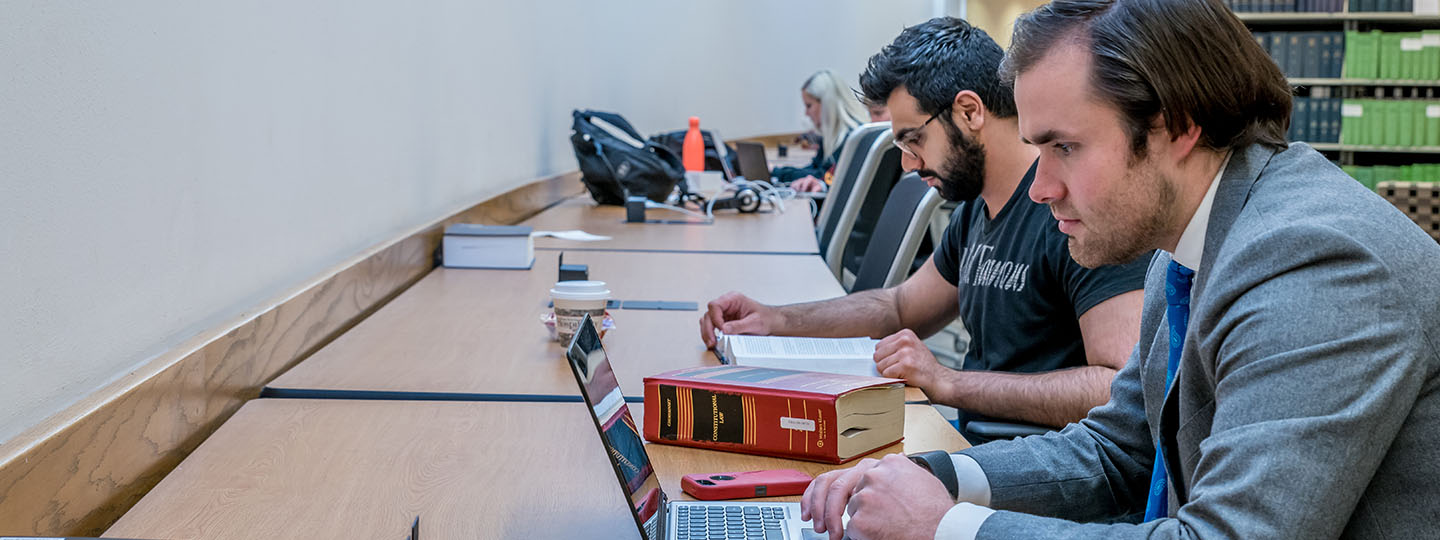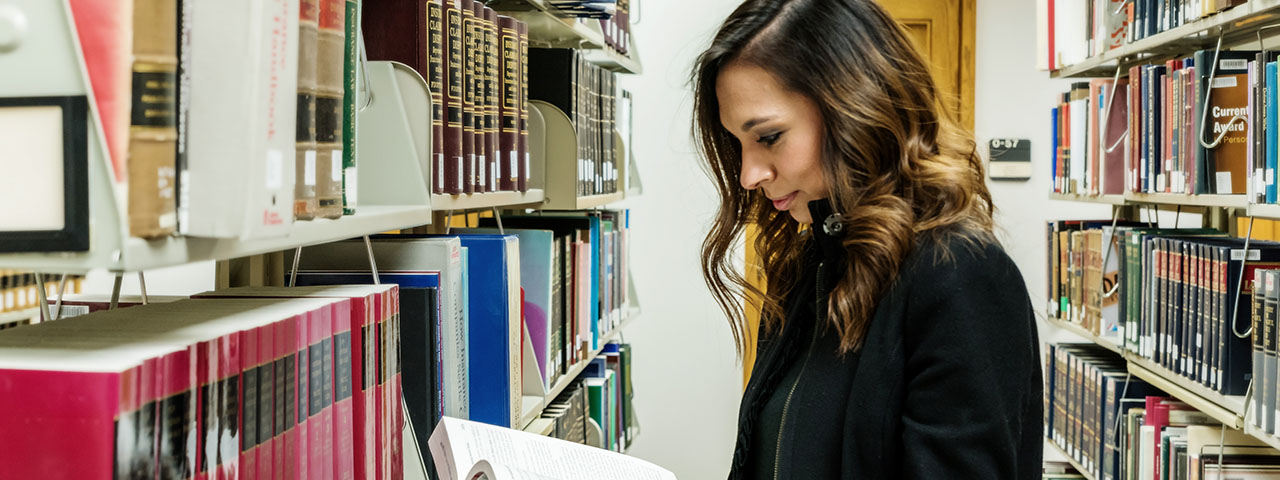Programs

The practice of law is diverse and ever-changing. Our goal is to provide students with a set of skills that will prepare them for wherever their careers take them. We also recognize that the modern practice of law has become increasingly complex so we offer numerous opportunities to specialize in various areas of law.
The Office of Academic Success Programs (OASP) is dedicated to helping law students achieve their full academic potential. The OASP is valuable to all law students who want to take complete advantage of their law school education.
The Legal Practice (LP) Program bridges the gap between a law student's theoretical education and the practice of law. LP introduces students to a variety of skills, including research, objective and persuasive writing, client interviewing and counseling, alternative dispute resolution, and appellate advocacy.

Students looking for a transformative experience have the opportunity to participate in a full-time externship in one of several major Texas cities. The externship exposes students to sophisticated legal work and creates an unparalleled educational experience. This program allows select third-year students to live in one of these cities for a full semester, taking classes and working with practicing attorneys or judges.
Part of successful legal practice is knowing how to excel in the legal environment. Students receive this experience through Texas Tech Law's extensive, nationally recognized negotiation, arbitration, client counseling, moot court, and mock trial programs. The Advocacy Program offers opportunities for students to compete at both an intraschool and interschool level.
The ultimate role of a lawyer is to serve others, a deeply held value at Texas Tech Law. The law school is dedicated to providing students with opportunities to gain practical legal experience by contributing legal services to underserved communities and causes. Students must complete at least 30 hours of pro bono legal advice and public service work before they graduate as part of the Public-Service Graduation Requirement.
School of Law
-
Address
Texas Tech University School of Law, 3311 18th Street, Lubbock, Texas 79409-0004 -
Phone
806.742.3791 -
Email
law@ttu.edu
